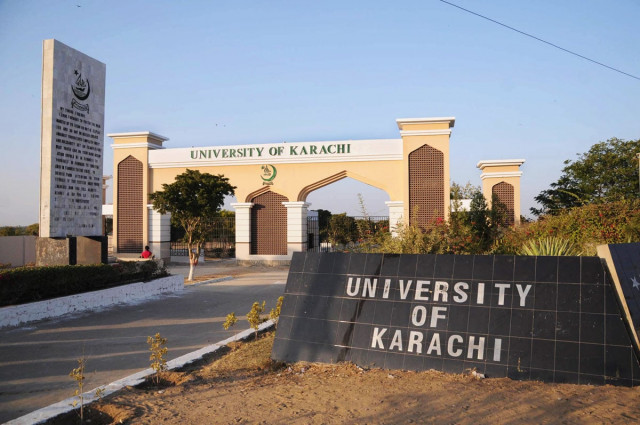KU to establish a separate criminology department
The university made the decision after years of controversy and a legal battle.

KU to establish a separate criminology department
The decision, made by the university's syndicate meeting, will allow the current and prospective students of criminology to pursue MPhil and doctorate degrees in this specialised branch of sociology. Students previously had to get themselves enrolled at the KU's sociology department in order to study this discipline, and were restricted to a Master's degree.

"Despite coming to it disappointingly late, I consider this decision a great achievement," said Prof Dr Fateh Muhammad Burfat, who has been associated with the KU sociology department for the last 28 years.
"Keeping in view the city's lawlessness, we are in dire need of experts who are equipped with a scientific knowledge of crime, criminal behaviour and law enforcement," Dr Burfat maintained while talking to The Express Tribune. "We were the pioneers of introducing specialised studies in this discipline here, but politicisation and battles of ego sabotaged the progress."
Criminology department history
The university's criminology department began in July 1996 as the Institute for Applied Criminological Studies with the approval of former KU vice chancellor Prof Dr Abdul Wahab.
Speaking to The Express Tribune, Dr Wahab recalled that the inauguration was done by Dr Naseer A Shaikh, chairperson of the defunct University Grants Commission that was later replaced by the Higher Education Commission. Meanwhile, former Sindh IG Dr Shoaib Suddle, who obtained a doctorate in criminology from the United Kingdom, was appointed as the advisor for the course.
The institute, chaired by the late psychology department professor Shamim Hashmi, gave admissions for two years after the department was formed. The first batch of 21 students passed out in 1998 with postgraduate degrees in criminology.
"The institute was then politically sabotaged by the new university administration that envied their predecessor's achievement, stating that the criminology department was created by a 'single person' manipulating the university code," said Dr Wahab. "I have created 12 other departments and institutes at KU in a similar manner. Why did nobody ever object to them?"
After a break of two years, the programme was reintroduced in 2000 under the sociology department. Prof Dr Khalida Rehman headed it for about two years, followed by Dr Farhat Faridi for the next two.
When Dr Burfat was appointed as the sociology department chairperson in 2003, he became the fourth person to be in-charge of the criminology department. Since then, more than 450 students did their Masters in criminology, with three students - Mohammad Altaf Tahir, Nabi Bix Narejo and Tahir Hameedullah - also completing their PhD in the subject and five more students still pursuing a doctorate in the discipline.
The legal battle
In 2010, after being enrolled in a doctorate in criminology for five years, Nabi Bux Narejo was informed by the university that the criminology department did not even exist. Proclaiming it a 'mistake', the university registrar offered Narejo a PhD in sociology instead.
Narejo found it hard to accept, however, that a department he was enrolled in and had paid the fee for had suddenly ceased to exist. The student approached the courts, which decided in his favour, forcing the university administration to award him a degree in criminology.
Following this, the university refused to enrol any students for a MPhil or a PhD in criminology.
Published in The Express Tribune, September 15th, 2014.



















COMMENTS
Comments are moderated and generally will be posted if they are on-topic and not abusive.
For more information, please see our Comments FAQ